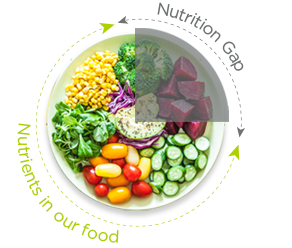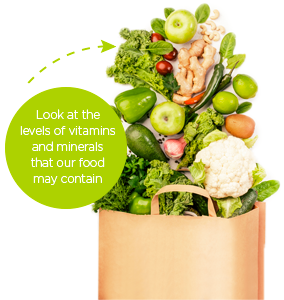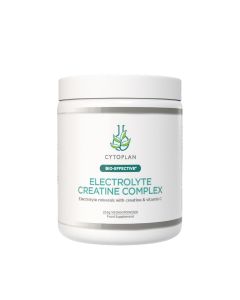

This page focuses on how our current sedentary lifestyle hinders our ability to consume enough micronutrients and vitamins, a problem which is intensified by a culture and society more focused on calorie counting rather than the nutritional content of the food we eat.
“The nutrition gap is responsible for the rise in chronic degenerative diseases seen in the Western world over the past 40 years”


What is the nutrition gap?
The nutrition gap describes the difference between the levels of nutrients the average person, eating a reasonable Western diet, is primarily obtaining from food, and those nutrient levels identified by research as being needed for optimal health in the population.
Many factors contribute to the nutrition gap including:

Food processing
Once a food is harvested, it begins to deteriorate quickly. The food processing sector provides the systems, machinery and equipment that helps the food industry keep foods safe. However, the further a food is from its natural form, the less it keeps its natural nutritional composition e.g. milling of flour reduces calcium, magnesium, zinc and folate.

Poor digestive health
Many factors play a role in poor digestive health including; high-stress levels, not enough sleep, eating processed and high-sugar foods and taking antibiotics. Poor digestive health may reduce our ability to absorb nutrients as well as affect other areas of our health. Read our extensive range of blogs on digestion and gut health, click here.

Lifestyle choice
Smoking, alcohol, stress, antibiotic use, poor sleep and toxins all deplete nutrients and increase the bodies need for essential nutrients

Food choices
Many people’s diets are high in refined, processed foods that offer low nutrient density and empty calories. There is often an emphasis on how many calories we should be eating – but calories are not all created equal.

Modern farming methods
The early forms of agriculture were more sustainable. Fodder crops rotated with nitrogen-fixing crops and grazing animals ensured mineral-rich fruit and vegetables, grown in mineral-rich soil. This process naturally re-mineralised and replenished the ground for the next crop. Soil depletion, transport storage, genetically modified organisms, the use of pesticides & herbicides and deep ploughing all affect the nutrient content of food.

Sedentary lifestyle
Our ancestors (hunter-gatherers) ate 4,000+ calories per day and needed every one as they were a lean and active beings. Our sedentary lifestyle means we eat 2,000 calories per day and even that is too much for some, but we still need the micronutrients – the vitamins and minerals – in 4,000 calories as our physiology is relatively unchanged from the Palaeolithic era.
Evolution and sedentary lifestyle
Hunter-gatherers were active, expending 4,000-5,000 calories per day. They were lean and fit. Survival required a large amount of daily energy expenditure in activities such as food and water procurement (the average hunter-gatherer walked about six miles a day, to hunt or collect food), social interaction, escape from predators and maintenance of shelter and clothing. This lifestyle represents the exercise patterns for which we remain genetically adapted.
Today we are sedentary, most of us need no more than 2,000 calories per day and even that is too much for many people – BUT we still need the micronutrients in 4,000 calories of food - just not the calories.
Immediately you can see there is at least a 50% reduction in the micronutrients we are consuming but the levels needed for health remain the same. In general, research has shown that the awareness of micronutrient needs is low amongst households, families, and parents which is born out statistically with low intakes of a broad range of vitamins and minerals across all age groups.
Most of us are familiar with the 5-A-Day campaign, but Public Health England’s (PHE) recommended intake, as indicated in the Eatwell Guide, is actually closer to 7-a-day. This failure to eat the recommended 5-a-day is reflected also in the Health Survey for England. In 2018, only 18% of children aged 5 to 15 ate five standard portions of fruit and veg per day, and only 28% of adults were eating the recommendations per day. These were lower than the previous year.
The latest consumer trends
We commissioned a research study with 2,000 adults to find out what people’s beliefs and behaviours about calories are and whether they ever consider levels of vitamins, minerals and essential nutrients when it comes to choosing which foods to eat. The results have shown us, people have a preference for counting calories and unfortunately this is sometimes at the detriment of nourishing and nutrient-rich foods.
Shockingly out of the 2,000 adults we asked, 4 in 10 people ‘obsess’ over calorie counting – but have no idea what else they might be consuming. 35% admitted to counting calories because they want lose weight with 22% saying it plays a part in their food choice each and every day.
Worryingly, Almost 1 in ten thought having your ‘five a day’ meant ‘eating colourful food’ and 17 per cent thought it was about getting enough vitamins into your diet, despite more than a third (34%) not knowing how to measure the amount of vitamins or minerals in their diet.
And finally, half of the respondents have been more sedentary in the last year - estimating on average they eat more than 2000 calories a day - but only burn 1,800.




What does this mean for people’s lifestyles in 2021
Lots of people are regularly counting calories through various apps and programmes in the belief they are adopting a healthy approach to diet and nutrition, while it is sometimes beneficial to understand your calorie intake, it is just, or maybe more, important to look at the levels of vitamins and minerals that our food may contain too.
Not all calories are created equal and it’s important to make sure that if striving to meet a calorie goal each day, we don’t sacrifice nutrient-dense foods. A diet full of nutritious foods is more beneficial than a diet rich in processed foods that might be low calorie, but may not offer vital vitamins and minerals to support overall health.
It’s not just about calories when it comes to choosing which foods to eat, it’s important to take into consideration how these foods build up to provide the optimal levels of nutrients needed for your health too.


